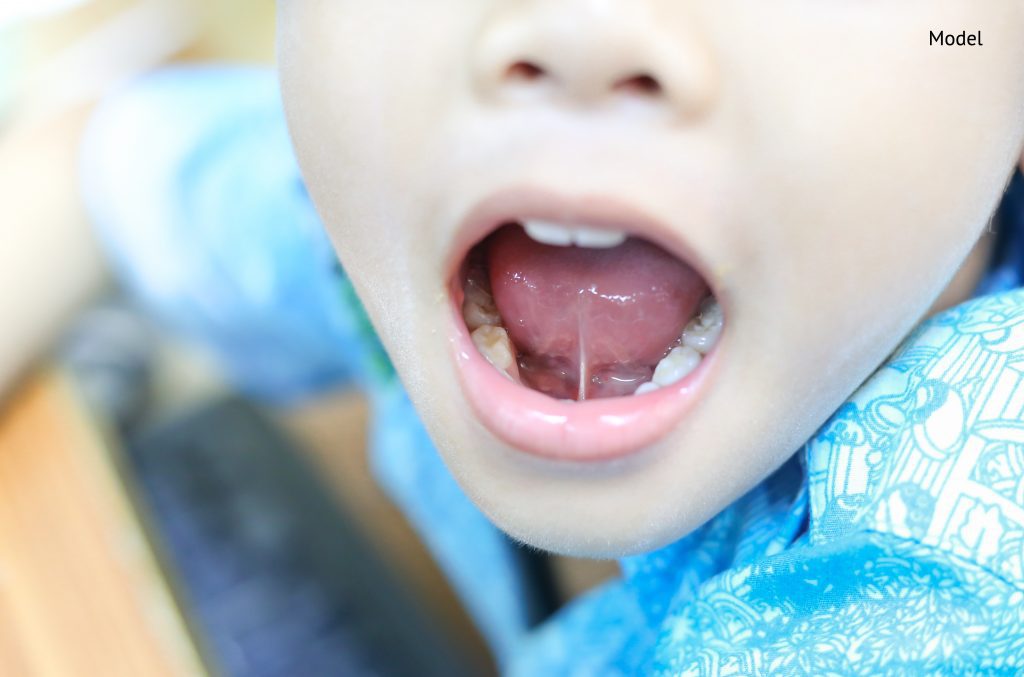Frequently Asked Questions About Frenectomy
Frenectomy, or frenum surgery, is a procedure designed to reduce the frenum in a patient’s mouth. Frena are the soft tissues found in the upper and lower mouth that connect the tongue to the bottom of the mouth and the lips to the upper and lower gums. In some cases, people have an elongated frenum that poses a potential threat to the tooth structure and formation of the mouth.
We have composed a comprehensive list of frequently asked questions about frenectomy to help our readers understand more about this procedure.

Does My Baby Need a Frenectomy?
If the existing frenum causes problems with eating, breastfeeding, speaking, or other mouth function, then your oral surgeon may conduct an assessment to determine whether a frenectomy is necessary.
It is recommended that early detection and treatment is delivered to reduce pain and prevent further issues from occurring.
What Are the Symptoms?
Elongated frena, sometimes called tongue-tie when the tongue is attached, or lip-tie when the lips are attached, can be diagnosed when a newborn has difficulty latching onto the breast, taking longer than usual to breastfeed, or becoming excessively gassy.
Children may have trouble swallowing, speaking, or their mouth may become tender or sore. Frenectomy may be recommended before the permanent teeth have emerged.
Are There Any Possible Complications?
Complications are typically rare, but some patients experience excessive bleeding, infection, damage to the tongue, nerves, or salivary glands, reattachment of the frenulum, or scarring.
Is Gum Grafting Combined With Frenectomy?
When lip and cheek muscles are anchored onto soft tissue in the mouth via the frenum, it can lead to a receding gum line. As your gums recede, it can expose your teeth and cause sensitivity and bone loss. Sometimes, a gum graft can be combined with frenectomy to improve receding gums and restore your attractive smile. By removing tissue from a donation site, it can be transferred to your gums in the area of concern to improve gum tissue health.
Should I Get a Frenectomy Before or After My Braces?
Most periodontists and orthodontists recommend getting braces prior to having a frenectomy. If done before, scarring can potentially prevent the closure of spaces between teeth. Once orthodontic treatment is completed, Dr. Salamati can determine whether a frenectomy is necessary.
When Can I Eat Again After Frenectomy?
You can eat immediately after the local anesthetic has worn off. For the first 24 hours, avoid hot foods, lukewarm or chilled foods are best.
Avoid biting into hard and crunchy foods until you have healed.
Can Tongue-tie or Lip-tie Resolve Itself?
Tongue-tie does sometimes resolve itself during early childhood. The frenum can loosen naturally and free the tongue to a full range of movement.
Your oral surgeon can help examine the condition and provide feedback on what can be done.
Is Frenectomy a Medical or Dental Procedure?
Frenectomy is considered a dental surgery.
Does Insurance Cover the Surgery?
Some dental insurance policies can provide coverage for specific surgeries, so be sure to contact your health insurance provider for further details.

To learn more about frenectomy and schedule a consultation with Dr. Salamati, call our office at 310.275.1090 or fill out our online scheduling form.
